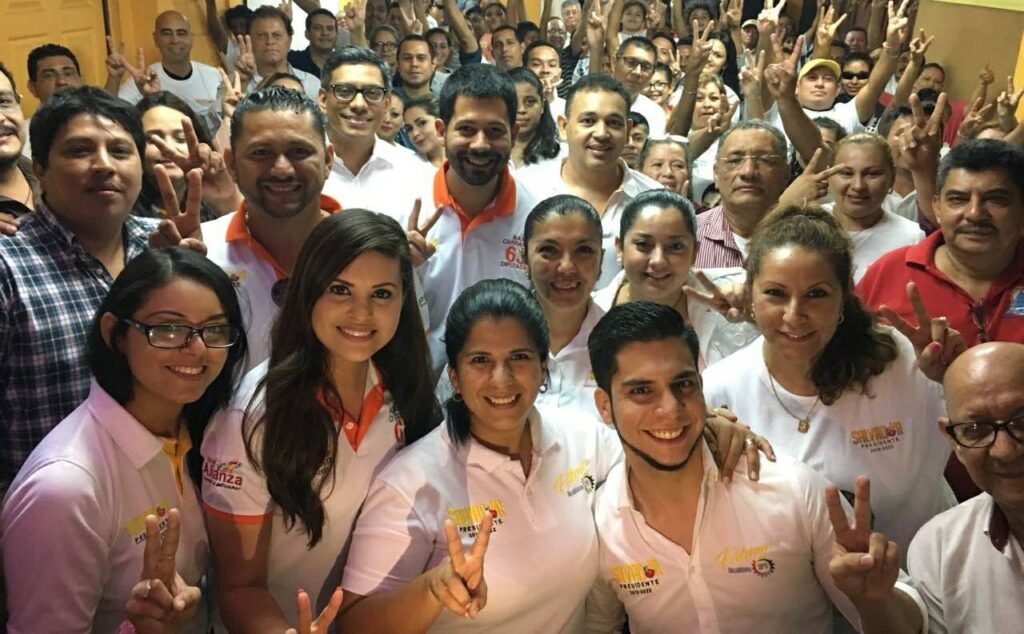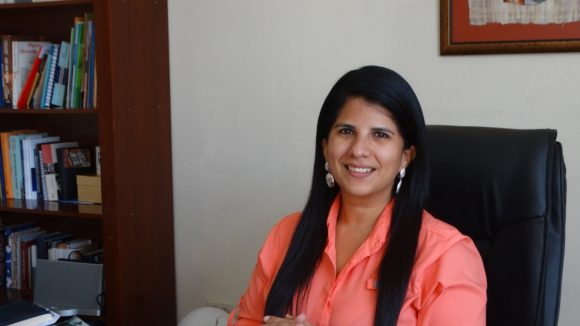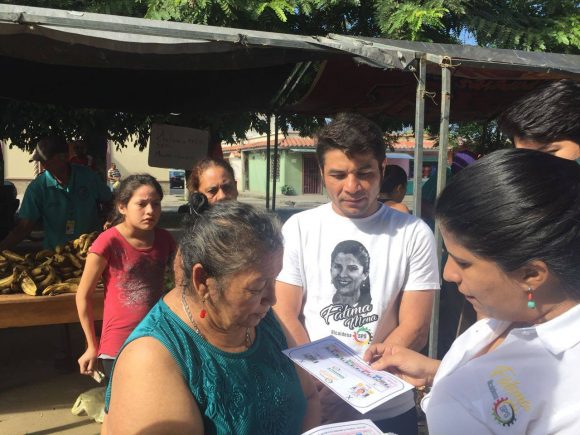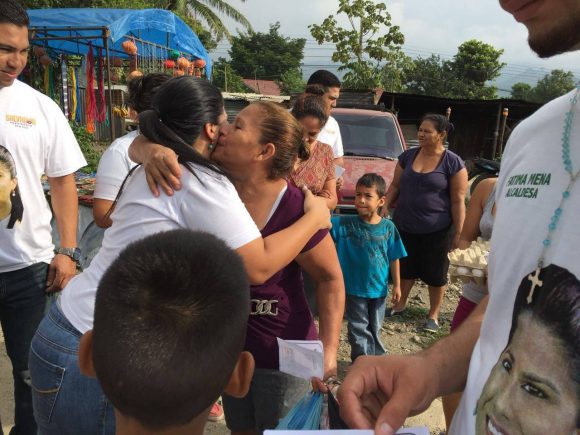Breaking down barriers: The story of a young leader in Honduras

In Honduras, not many women are involved in politics.
Fátima Mena is an exception to that rule. As a law graduate, she has always held deep convictions based on the principle of justice.
In her handbag, she carries the Honduran Constitution and a bible to remind her that democratic principles always come first, no matter how you look at things.

At the heart of Fátima’s convictions is her experience living in exile. As a result of her mother’s role as a magistrate, her family had received threats of abduction and had been forced to flee Honduras.
Working for a human rights NGO during her time abroad, she came to realize that it is possible to make a difference in the life of others as a professional.
This realization deepened when she became a mother on her return to Honduras. Following the birth, she suffered severe depression, which she blames on the political instability in her country and flaws in the justice system. She started to believe that she was “irresponsible for bringing my son to live in a country with so much corruption”.
It was during this time that she decided to volunteer for the Anti-Corruption Party in Honduras. She climbed quickly within the party, becoming coordinator for the Cortés Department, a member of the national council of the party, and a candidate for the 2013 parliamentary elections.
The NIMD Candidates’ Academy
In 2013, to help her prepare her campaign, Fátima took part in the first ever Women Candidates’ Academy, organized by NIMD in cooperation with NDI, UN Women, UNDP and the Instituto Nacional de la Mujer (National Institute for Women, INAM).

The Academy strengthens the capacities and knowledge of women candidates on topics such as gender, communication and political strategy.
Fátima found the experience very helpful. She admits that, before she participated, her political knowledge had been limited, based mainly on her own perceptions and experience.

With the support of the Candidates’ Academy, Fátima ran a successful political campaign with only scarce resources. She based her campaign on proposals that were achievable, tangible and believable for citizens.
She focused particularly on the fight against corruption, and respect for human rights and the rule of law.
She was able to use the knowledge and skills she learned in the Academy in various phases of the electoral process, from planning her campaign, to formulating and communicating her messages, taking part in multiparty debates and becoming a fierce advocate for women in politics.

This experience allowed her to profile herself as one of the most important political leaders of her party and region.
At the age of 31, she was elected to Congress, with the second highest number of votes of any Congressperson in her Constituency, and with the most votes ever won by a woman from an emerging political party.
In her position, she was able to put another learning from the Candidates’ Academy into practice. Besides increasing her skills, the Academy had also made her realize the importance of multiparty cooperation.
So, as a Secretary of the Committee on Equality and Gender, she helped woman parliamentarians from different political parties to coordinate their efforts to put gender equality on the agenda of parliament and promote women’s political and economic rights.
Barriers to growth
Fátima’s pioneering role was not always easy. She recognizes that “Being a woman, being young and being part of a political party against corruption is a big challenge, especially in a society whose culture is both machista and caudillista”.

Indeed, after a short time in Parliament, internal problems in her political party and being in the spotlight took their toll on Fátima as Chair.
Media coverage questioned her professional capacity and integrity rather than reporting on her performance as a politician and Member of Congress. In addition, the party underwent a crisis in 2017 which led to a permanent split and the forced resignation of the party leadership.
This series of events, far from demotivating Fátima, drove her to continue her political work.

She participated in a series of projects to promote the rights of women and young people.
She put together a parliamentary group to support the fight against corruption and continued her work in the Equality and Gender Committee, handling initiatives and reforms in favour of Honduras’s women and girls.
In November 2017, Fátima was elected as a councillor in San Pedro Sula, one of Honduras’s largest cities.

Throughout her political development, Fátima continued to receive NIMD’s support. The organization was proud to provide tools to help Fátima overcome the gender barriers and stereotypes that she faced.
The example of Fátima’s empowerment and the recognition of her tireless work to promote women’s rights, have positioned her as a leader.
And this paves the way for other women to participate actively in politics and break down the cultural and social barriers that obstruct their political work.
